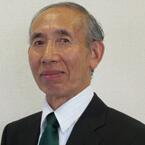Invited speaker---Dr. Keiji Nakayama

Dr. Keiji Nakayama, The President, Institute of Mesotechnology(IOM), Japan
Title: Triboelectromagnetic Phenomena in Combinations of Moving Tribomaterials against Stationary Ones
Abstract: Triboelectromagnetic phenomena embrace triboemission, post emission, triboplasma generation and tribocharging. The characteristics and mechanisms of triboelectromagnetic phenomena are presented in combinations of the moving tribomaterials against stationary ones.
In steel sliding against various metals such as Al, Ti, Mo, Fe and so on, no triboplasma was generated, but electrons were emitted. However, even in various metals and conductive amorphous carbon, as well as polymers of polyaceal and PTFE, triboplasma was generated when they slid against dielectric sapphire, since in this system tribocharging occurs.
In diamond sliding against various kinds of tribomaterials of metals of Al, Fe and Cu, semiconductors of SiC and glass, insulators of Si
3N
4 and Al
2O
3, nylon, PTFE and mica, the triboemission intensities of electrons, ions and photons increased with the electric resistivity to give the emission intensities in the orders of insulators > semiconductors > conductors, since tribocharge induced electric field to accelerate the emitted electrons for generating the triboplasma increases in this order.
Triboluminescence mechanisms were investigated in the tribo-systems of diamond sliding against single crystals of Al
2O
3, MgO and SiO
2. The triboluminescence in visible region were attributed to the photoluminescence (PL) and cathodoluminescence (CL) from the Cr3+ impurities in Al
2O
3, to the F
+ and F centers, Fe
3+ and Cr
3+ impurities in MgO, and to the E, center, NBOHC, oxygen vacancy and impurities in SiO
2.
The triboplasma, which is cold plasma1), can be controlled by controlling the electric resistivity of the tribomaterials, the hydrogen content in DLC films and geometry of the tribomaterials2). It is anticipated that new advanced triboplasma technologies are developed using the triboplasma controlling technologies based on the materials science and engineering.
References: 1) K. Nakayama, et al: Trib. Lett. 66 (2018)10,
2) K. Nakayama: Jpn. J. Appl. Phys., 46 (2007) 6007.

